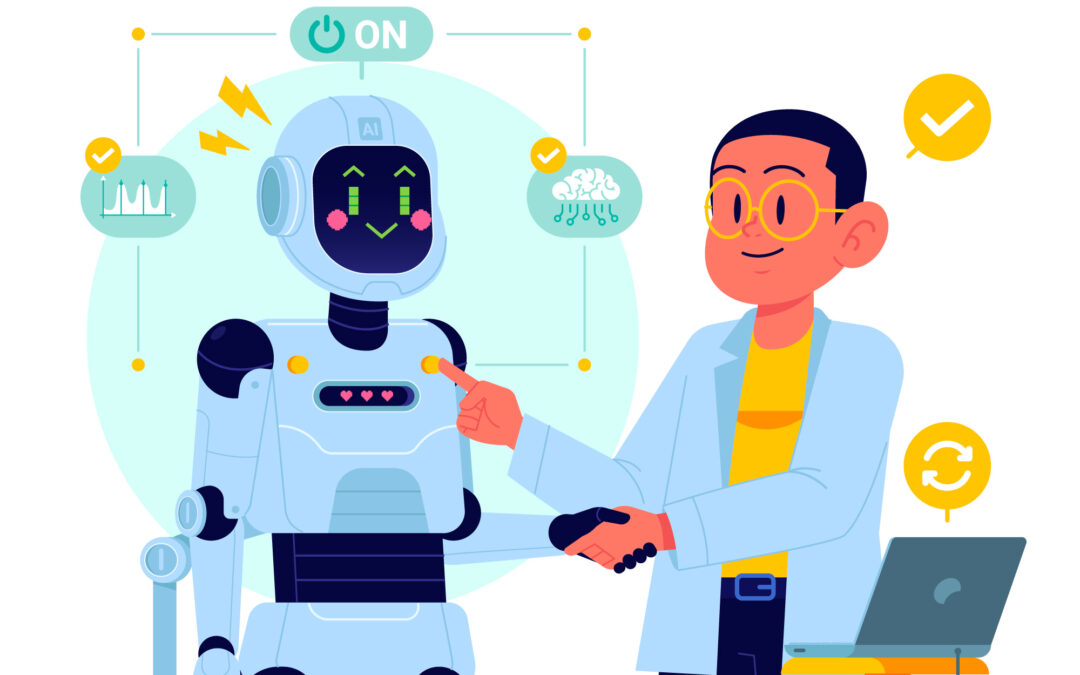Artificial Intelligence (AI) and Machine Learning (ML) are rapidly transforming the digital landscape, revolutionizing how we interact with the web. From personalized recommendations to advanced search algorithms, these technologies enhance user experience, optimize business operations, and drive innovation across various sectors. However, the influence of AI and ML on the web extends beyond mere convenience and efficiency; it also presents challenges that need to be addressed to ensure ethical, fair, and transparent implementation.
Personalization and User Experience
One of the most visible impacts of AI & Machine Learning on the web is personalized content recommendations. Platforms like Netflix, YouTube, and Amazon utilize sophisticated algorithms to analyze user preferences and behaviors, offering tailored suggestions that enhance user engagement and satisfaction. This personalization extends beyond content to include targeted advertising, where AI analyzes user data to deliver relevant ads, thereby increasing ad effectiveness and user satisfaction.
Enhancing Web Accessibility
AI & Machine Learning have significantly contributed to making the web more accessible. Voice recognition technologies, powered by AI, enable voice search and virtual assistants like Siri, Alexa, and Google Assistant, allowing users to interact with web content using natural language. This technology benefits not only the general population but also individuals with disabilities, offering alternative ways to access and navigate the web.
Moreover, AI-driven tools like automatic captioning and translation services make web content accessible to a global audience. For instance, YouTube’s automatic captioning uses speech recognition to generate subtitles for videos, improving accessibility for hearing-impaired users. Similarly, AI-powered translation services break language barriers, facilitating cross-cultural communication and information sharing.
Ethical Considerations and Bias Mitigation
The influence of AI and ML on the web is not without ethical challenges. Bias in AI algorithms can perpetuate and even amplify societal inequalities. For example, biased training data can lead to discriminatory practices in content recommendations, hiring algorithms, or loan approval processes. Addressing bias requires a multi-faceted approach, including diverse data collection, rigorous testing, and ongoing algorithmic audits.
Transparency in AI decision-making processes is also critical. Users should understand how their data is used and how algorithms influence the content they see. Implementing explainable AI (XAI) techniques, which make AI decisions more interpretable, can enhance transparency and accountability.
Moreover, the use of AI for content moderation raises ethical concerns. Automated moderation tools, while efficient, can mistakenly flag or remove legitimate content, impacting freedom of expression. Combining AI with human oversight ensures more accurate and fair content moderation.
Future Directions and Innovations
As AI & Machine Learning technologies continue to advance, their influence on the web will only grow. Emerging trends, such as the integration of AI with augmented reality (AR) and virtual reality (VR), promise to create immersive and interactive web experiences. AI-driven chatbots and virtual assistants will become more sophisticated, offering seamless customer support and personalized interactions.
The development of decentralized AI, powered by blockchain technology, is another promising direction. Decentralized AI platforms aim to democratize AI access, allowing users to retain control over their data and participate in AI model training and validation processes. This could lead to more transparent, equitable, and user-centric AI applications on the web.
Conclusion
Steering the influence of AI & Machine Learning on the web is a complex and ongoing endeavor. The potential benefits of these technologies are immense, from enhancing user experiences and accessibility to revolutionizing content creation and curation. However, realizing these benefits requires addressing ethical challenges, ensuring data privacy, and promoting transparency and accountability.
By adopting responsible AI practices, fostering interdisciplinary collaboration, and engaging in continuous dialogue with stakeholders, we can harness the power of AI and ML to create a more inclusive, equitable, and innovative web. The future of the web, shaped by AI and ML, holds tremendous promise, and it is up to us to navigate this landscape thoughtfully and ethically.


